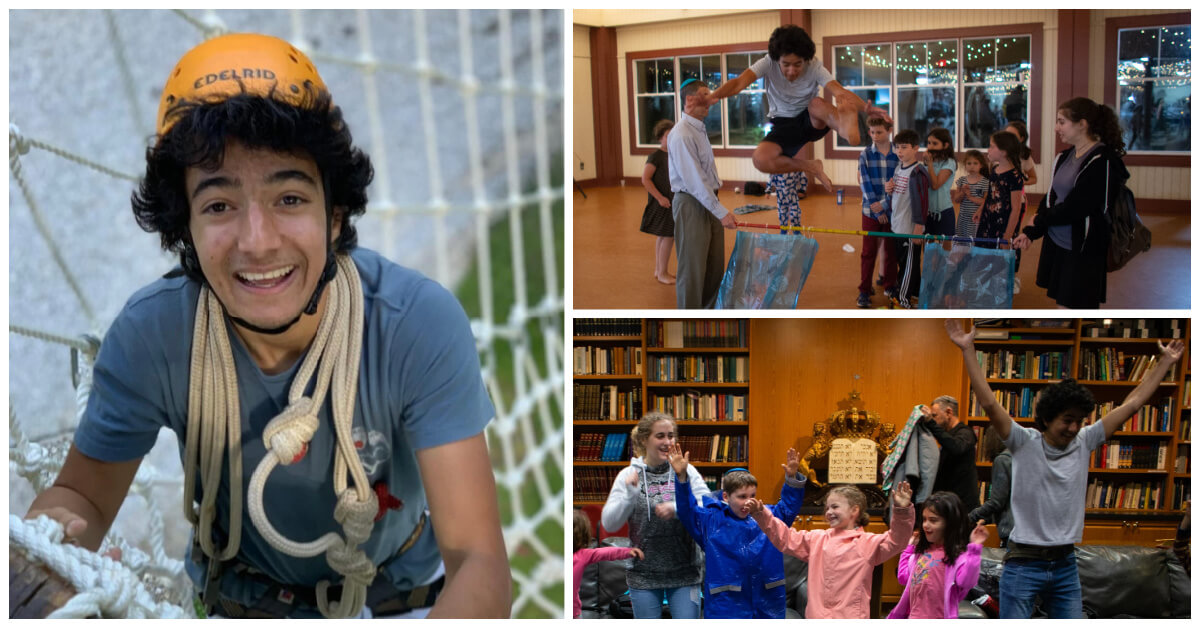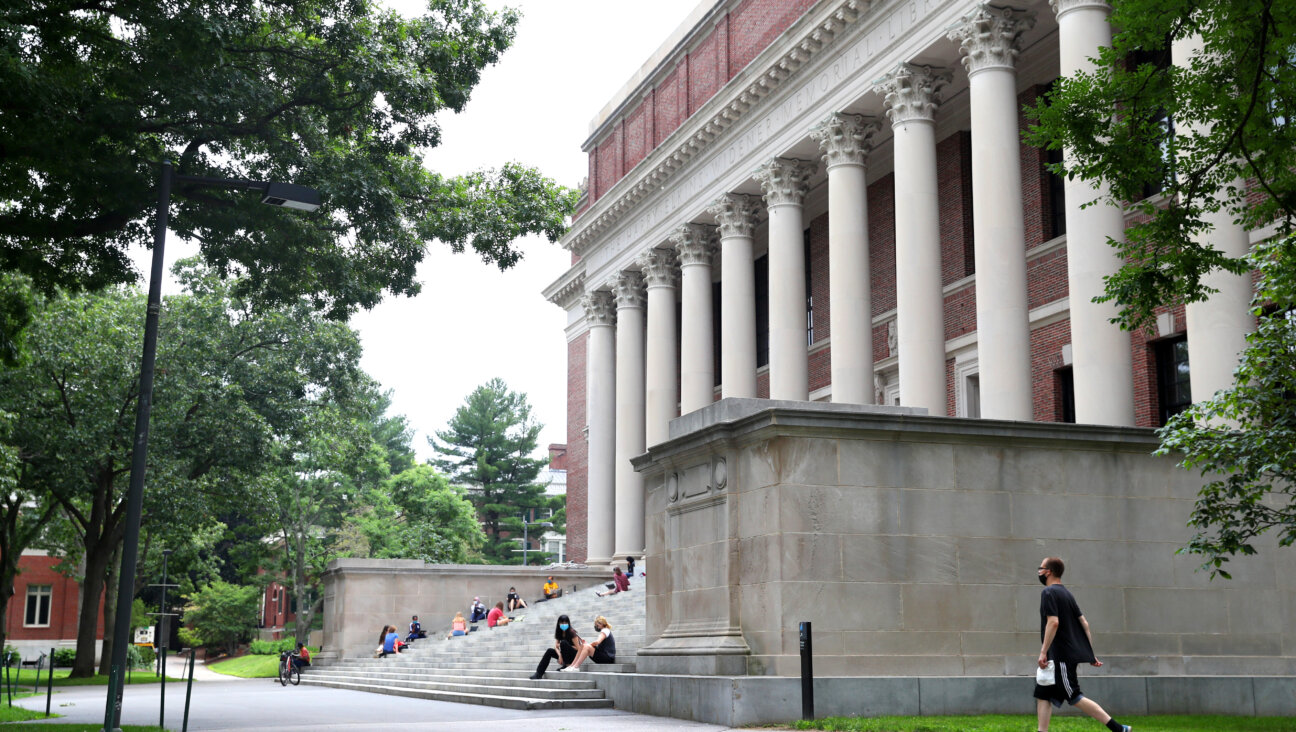Running Rabbis Go the Distance — 26 Miles — To Raise Money for Charities

Founders: Rabbis Scott Weiner, left, and Benjamin David founded Running Rabbis in 2005. They have raised about $30,000 for charities from the races. Next up: The New York City Marathon. Image by courtesy of lisa david
Those watching the ING New York City Marathon on November 1 should keep their eyes peeled for the Running Rabbis.
A minyan’s worth — 10 rabbis, cantors and rabbinical and cantorial students — will be running through the streets as part of a social action endeavor started by two Reform rabbis who want to change the world, literally one step at a time.
The Running Rabbis, recently featured in Runner’s World magazine, are less about speed than they are about tikkun olam. Founded by two graduates of Hebrew Union College-Jewish Institute of Religion, rabbis Benjamin David and Scott Weiner, the group of Jewish clergy runs to raise funds for worthy causes. This year, they are running to raise $30,000 for Hole in the Wall Camps, where children with serious and life-threatening medical conditions can enjoy summer fun for free. As of mid-October, they had raised more than $21,000.
As rabbinical students, Weiner and David worked in the college’s soup kitchen. They liked their work there, Weiner said, but found that upon graduating, “creative involvement in social justice wasn’t at our fingertips in the congregational world.”
Weiner and David, running partners as well as study partners, ran the New York City Marathon together for the first time in 2005. “The people in our lives were really taken by the idea of two rabbis running the marathon,” said David, rabbi at Temple Sinai of Roslyn, N.Y. “So we decided to try to use that kind of attention for something good.”
The pair founded Running Rabbis in 2005. Since then, they have run marathons and half marathons in at least five states and raised almost $30,000 for various causes, including the Starkey Hearing Foundation and the Organization for Autism Research.
Is a minyan of Running Rabbis more effectual than a rabbi running solo? For David, 32, the answer is a definitive yes. “Across the board, Judaism is about community and about bringing people together,” David said.
Rabbi Maurice Salth of New York City’s Central Synagogue, who describes himself as an “average” athlete, will be running a marathon for the first time this year, alongside his Central Synagogue colleague and veteran marathon runner Rabbi Michael Friedman. After cheering on runners in the New York City Marathon in 2004, Salth was inspired to race himself. Joining the Running Rabbis, he said, seemed like a natural outgrowth of that desire.
“I hope being a part of the Running Rabbis team will help remind people that their clergy are well-rounded people who are as comfortable repairing the world by running 26.2 miles as they are teaching Torah,” Salth said.
Weiner, 34, senior rabbi at New York’s Temple Israel of New Rochelle, said he hopes the group will become trans-denominational, but so far only Reform rabbis and rabbinical and cantorial students have joined in.
David said that his definition of who can participate is a fairly expansive one. “I like to think of the Running Rabbis as not just people who run and not just rabbis, but as people who are committed to doing good. If they’re interested in tzedakah, social action, and pursuing those ideas with their hands and feet, that’s a running rabbi in my book,” David said.
The group relies largely on word-of-mouth for publicity. “So far, our best advertising has been our shoulders,” Weiner remarked, alluding to the “RunningRabbis.com” T-shirts the group members wear on their runs. “People find us after the race and ask, “Are you guys really rabbis?” Incredibly enough, he said, laughing, many people find it hard to believe that rabbis run marathons.
Weiner said the group tends to turn the most heads in the New York Marathon’s path through the Williamsburg section of Brooklyn, home to many Hasidic Jews: “We definitely get some shocked faces as we run through Williamsburg.”
The rabbis log their miles of marathon training between funerals, weddings, counseling and their myriad other responsibilities. “If you can survive the training,” David said, “you can survive the marathon.”
The rabbis noted that because of their marathon running, not only do congregants have feelings of nakhes (pride and joy) for them, but they also respect them more. “It adds to the respect that they have for us — not only because marathons are challenging things to do, but also because they know how busy rabbis are, and how hard it is to do marathon training,” Weiner said. “It makes them say, ‘Well, if they can do it, I could do it!’”
“Our congregations are proud that rabbis are leading by example,” David said. “We’re literally practicing what we preach: Let’s perform tikkun olam and help people who genuinely need our help. People are responding to that.”
In addition to working on mending the world, he acknowledged that Running Rabbis provides an outlet for participants’ healthy competitive streaks.
“We’re interested in promoting tikkun olam and galvanizing the community, but we also happen to be pretty competitive,” said David, a longtime runner. “I’m interested in all the aspects of the sport, and getting the very best out of myself in training.” He runs 55 miles a week, and over the course of a year attempts to log close to 1,800 miles.
When asked who is the fastest Running Rabbi, David answered — arguably, rabbinically — “That’s up for debate.”
To make a donation, go to www.runningrabbis.com
Contact Jordana Horn at [email protected]
The Forward is free to read, but it isn’t free to produce

I hope you appreciated this article. Before you go, I’d like to ask you to please support the Forward.
Now more than ever, American Jews need independent news they can trust, with reporting driven by truth, not ideology. We serve you, not any ideological agenda.
At a time when other newsrooms are closing or cutting back, the Forward has removed its paywall and invested additional resources to report on the ground from Israel and around the U.S. on the impact of the war, rising antisemitism and polarized discourse.
This is a great time to support independent Jewish journalism you rely on. Make a Passover gift today!
— Rachel Fishman Feddersen, Publisher and CEO
Most Popular
- 1

News Student protesters being deported are not ‘martyrs and heroes,’ says former antisemitism envoy
- 2

News Who is Alan Garber, the Jewish Harvard president who stood up to Trump over antisemitism?
- 3

Fast Forward Suspected arsonist intended to beat Gov. Josh Shapiro with a sledgehammer, investigators say
- 4

Politics Meet America’s potential first Jewish second family: Josh Shapiro, Lori, and their 4 kids
In Case You Missed It
-
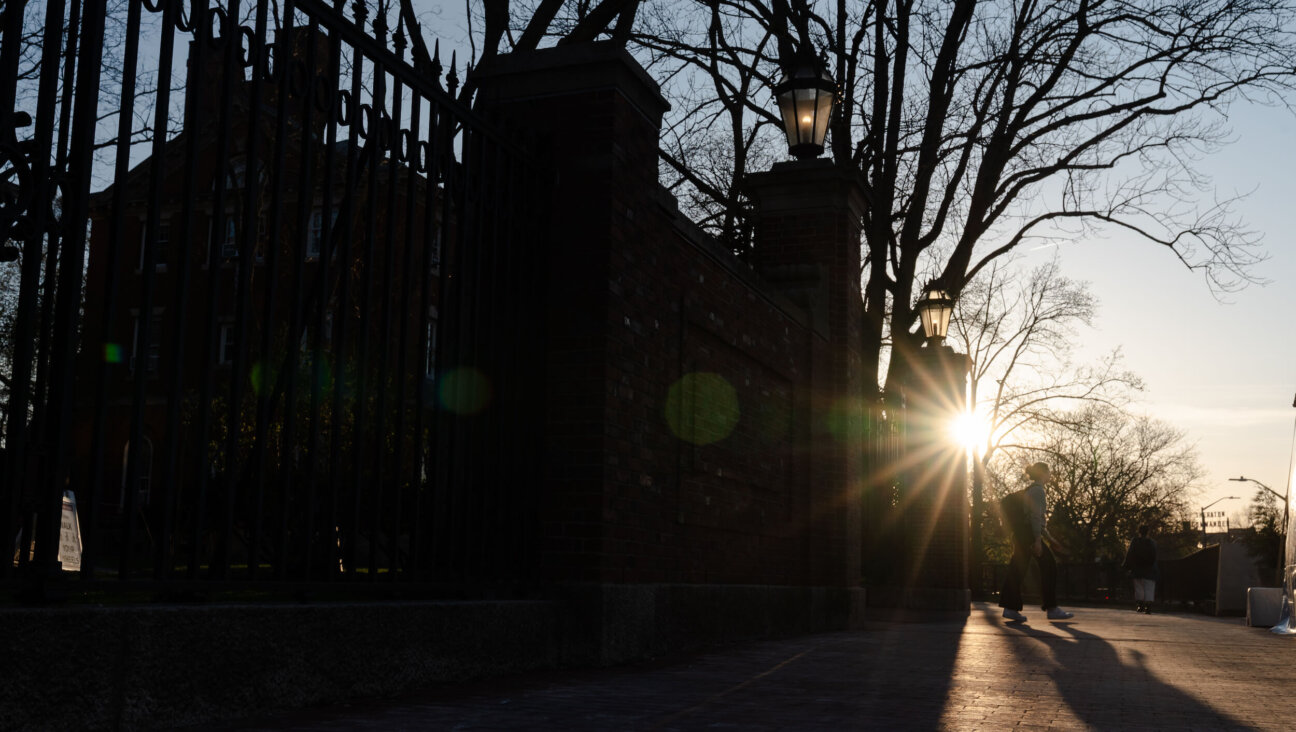
Opinion Why can Harvard stand up to Trump? Because it didn’t give in to pro-Palestinian student protests
-
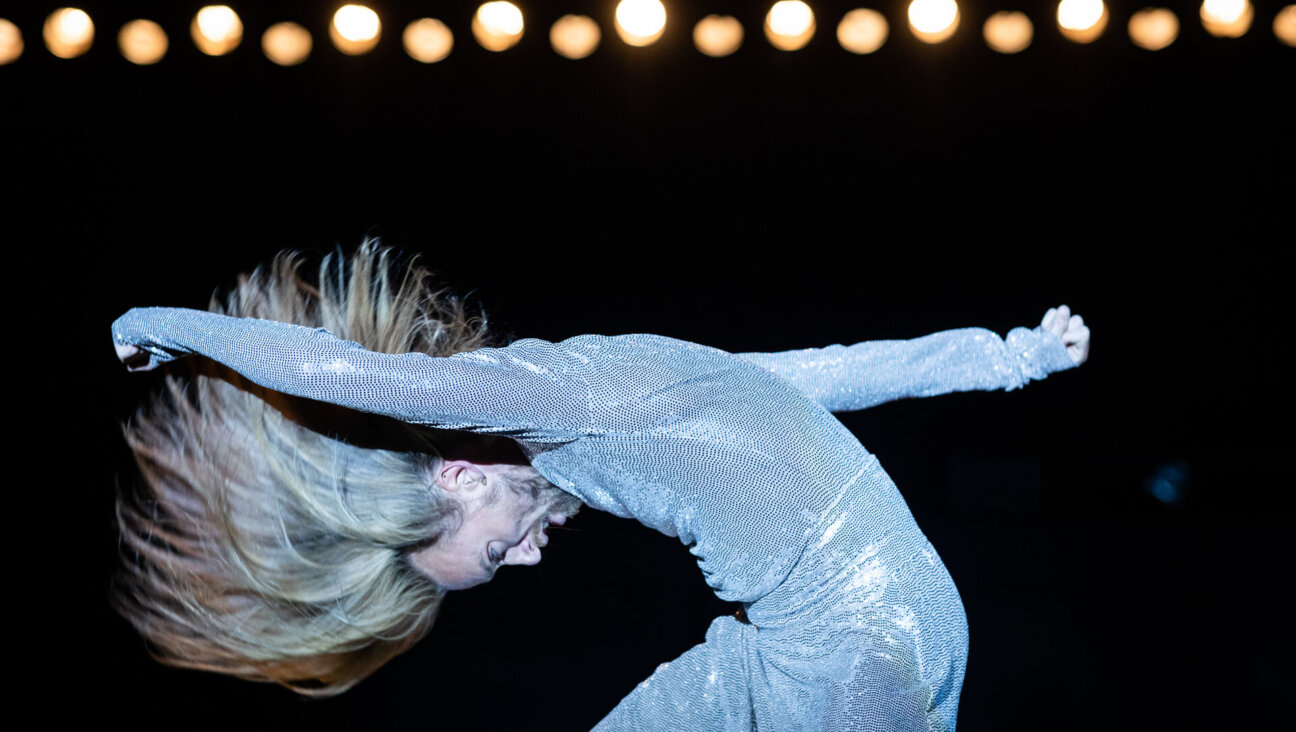
Culture How an Israeli dance company shaped a Catholic school boy’s life
-
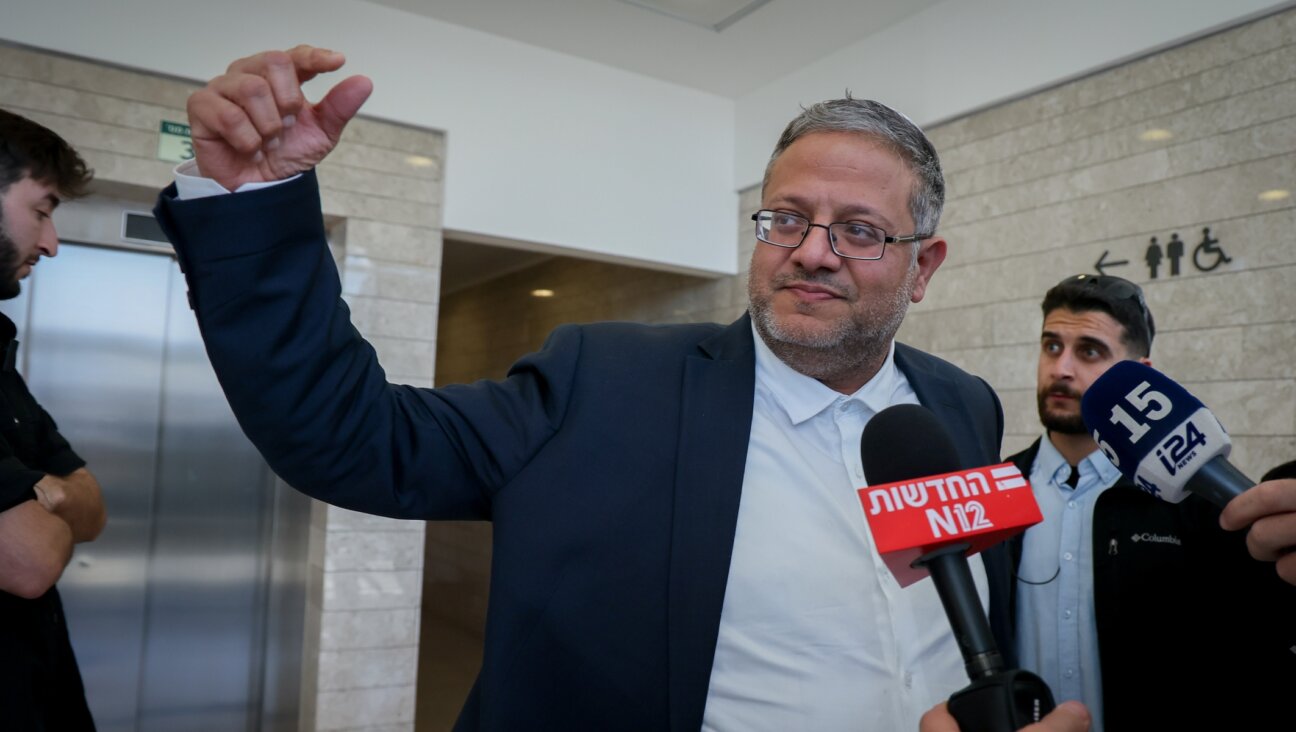
Fast Forward Brooklyn event with Itamar Ben-Gvir cancelled days before Israeli far-right minister’s US trip
-
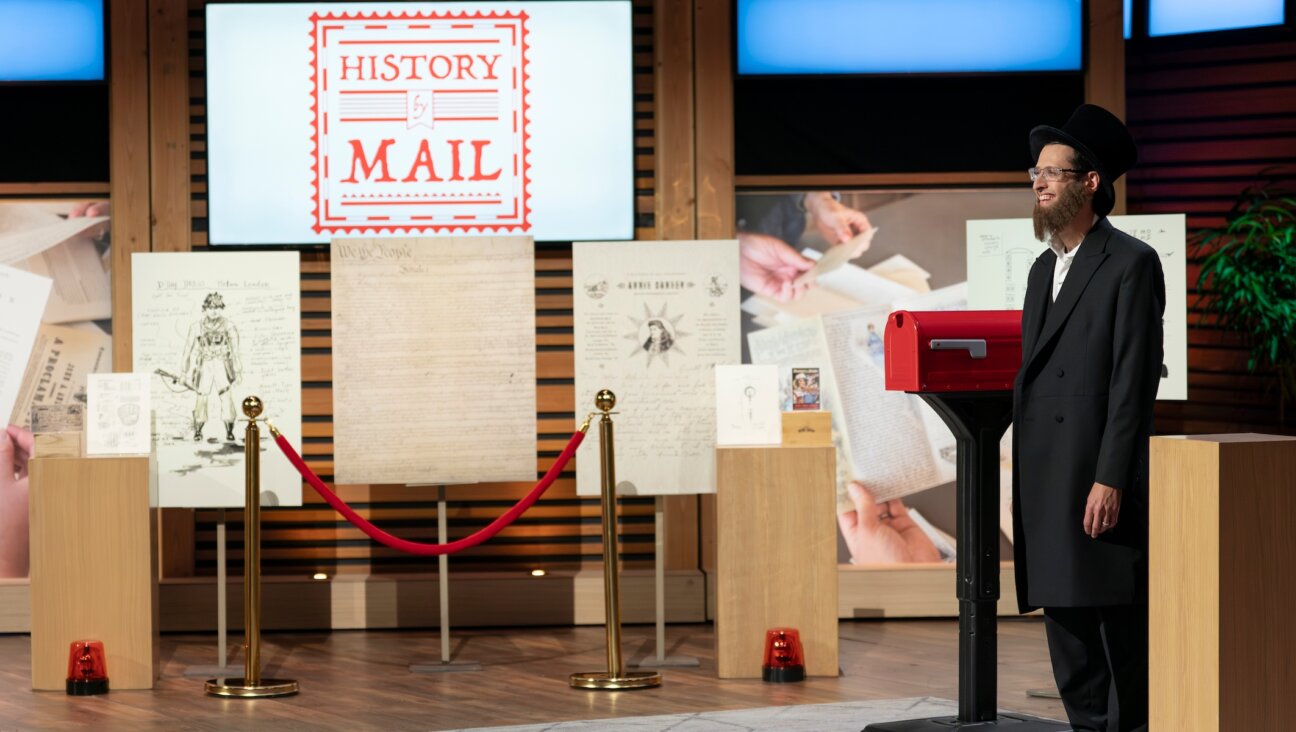
Culture How Abraham Lincoln in a kippah wound up making a $250,000 deal on ‘Shark Tank’
-
Shop the Forward Store
100% of profits support our journalism
Republish This Story
Please read before republishing
We’re happy to make this story available to republish for free, unless it originated with JTA, Haaretz or another publication (as indicated on the article) and as long as you follow our guidelines.
You must comply with the following:
- Credit the Forward
- Retain our pixel
- Preserve our canonical link in Google search
- Add a noindex tag in Google search
See our full guidelines for more information, and this guide for detail about canonical URLs.
To republish, copy the HTML by clicking on the yellow button to the right; it includes our tracking pixel, all paragraph styles and hyperlinks, the author byline and credit to the Forward. It does not include images; to avoid copyright violations, you must add them manually, following our guidelines. Please email us at [email protected], subject line “republish,” with any questions or to let us know what stories you’re picking up.





